On the first day of July 1921 the University of Dhaka opened its doors to students with Sir P.J. Hartog as the first Vice-Chancellor of the University. The University was set up in a picturesque part of the city known as Ramna on 600 acres of land.
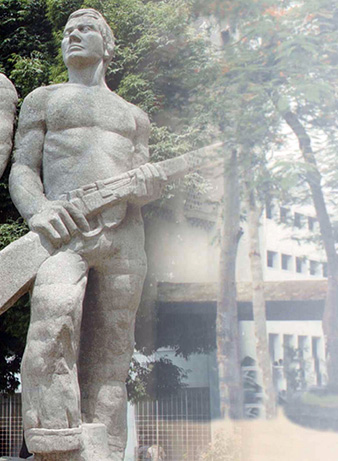
The main purpose of the University was to create new areas of knowledge and disseminate this knowledge to the society through its students. Since its inception the University has a distinct character of having distinguished scholars as faculties who have enriched the global pool of knowledge by making notable contributions in the fields of teaching and research.
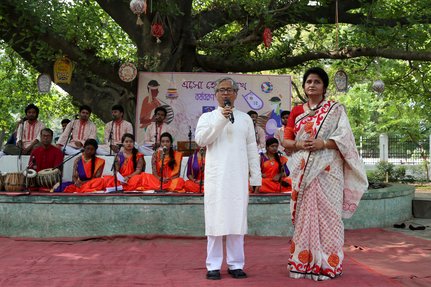
The high standard of education and research for the University was set by its first Vice-Chancellor, Sir P.J. Hartog when in the 2nd Convocation address he said, "A man may be an excellent teacher of elementary subjects without the power to add to knowledge. But in advanced work I maintain that no one can really teach well unless he has the combination of imagination with critical power which leads to the original production (of knowledge), and for that if for no other reason, a university to be a true university must see that its teachers are men who are also capable of advancing knowledge."
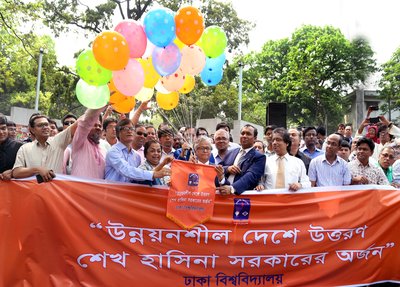
At the beginning a distinctive feature of the University of Dhaka was its non affiliating,
residential character like that of the Oxford of England. However,
since 1947 the University was given an affiliating mandate in place of an exclusive
residential-cum-teaching character.
A new phase began in the history of the University with the emergence of the
People's Republic of Bangladesh in 1971. This has been a phase of development,
expansion and consolidation of earlier gains. The University has assumed
a central role in the academic pursuits of the region including this new nation.
The University of Dhaka has passed through tumultuous times at different periods
of our national history and played vital, at times pioneering, roles in all critical
junctures in the making of this great nation.
The founder of Bangladesh Bangabandhu Sheikh Mujibur Rahman along with the teachers and students of
this University played the central role in the Language Movement of 1948 and 1952 that ultimately
culminated in the recognition of Bangla as the State Language. He along with 27 students actively
participated in the movement of fourth-class employees of this university and was penalized for
several times. He was also expelled and lost his studentship from the department of Law. Later on, this
university under the active guidance of Bangabandhu launched the student movement, 6-point movement
and 11-point movement and thus leading the country towards independence. Henceforth several important
incidences took place: the flag of Bangladesh was hoisted on 2nd March 1971, next day the manifesto of
independence was declared and Bangabandhu became the head of the state, open arms training started and
Joy Bangla Bahini was formed after the historic 7th March speech, which ultimately set the nation for a
formal freedom fighting. During the liberation war Mujibnagar Government was formed with Bangabandhu as
the President, Sayed Nazrul Islam as the Vice President and Tajuddin Ahmed as the Prime Minister.
These leaders and many, who participated in the liberation war, were the students of this university.
During the liberation war 194 persons including teachers, students, officers, staffs and their relatives
sacrificed their lives at the altar of the state and this way Dhaka University made an extraordinary and
considerable contribution in the creation of independent Bangladesh.
Just after the creation of Bangladesh, the government proclaimed
the University of Dhaka Order 1973 whereby democratic norms and
autonomy became integral features of the institution.
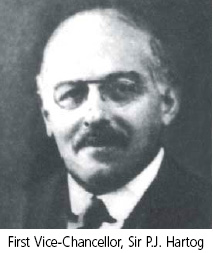
Presently the University enrolls more than 5,800 students, on merit basis, in the first year Honours Program in different Departments of the Faculties and the Institutes. Besides conducting teaching courses in the 4- year Bachelor and 1-year Masters Programmes, the University also trains up a large number of researchers in different disciplines. More than 1262 Ph.D. and 1217 M.Phil. researchers have obtained their degrees from this University.
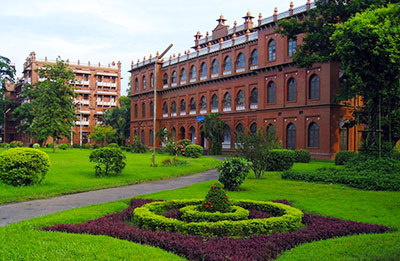
The University of Dhaka is well prepared to meet the challenges of the future days with its spirit of freedom, justice and truth as a foundation concomitant to the objectives envisaged by the founding fathers.
The open-minded character of the University of Dhaka embodying the features of beauty and historical origins can be seen as one enters the campus.
